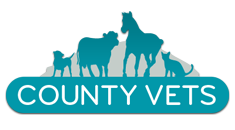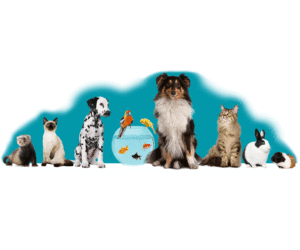When to make the decision
Many owners ask for guidance about how they can recognise that their horses’ welfare has deteriorated to such an extent that euthanasia is required. Not many horses die naturally and as horses live longer it is common that their condition deteriorates to a stage where it is necessary to euthanise them to prevent suffering. Most people decide to have their horses euthanised at home in their familiar surroundings as this will involve the least disturbance for the horse. If there is time to plan, it is useful to have a large enough area with suitable access for the vehicle which will take the horse away. A quiet grassy area is a preferable choice.
The following guidelines may be of assistance – but each case does require individual assessment, your vet can help you making the choice.
Conditions that may require immediate euthanasia include
Injuries:
- A complete long bone fracture above the knee or hock.
- Collapse of the tendons in both fore or both hind limbs.
- An open (compound) fracture below the knee or hock.
- Severe colic where surgical correction is not practical.
Old age or infirmity.
- Gets cast frequently in box or at pasture.
- Requires assistance to rise.
- Development of sores over pressure points such as elbows or over the pelvis.
- Severe weight loss such as there is no fat covering.
- Loss of majority of teeth – making eating difficult.
- Severe lameness not alleviated by pain killers or appropriate treatment.
- Severe ongoing laminitis that is not responsive to treatment.
- For reasons of age, unable to interact with other horses in the group, possibly being bullied.
You are welcome to stay with your horse whilst the euthanasia is carried out. Some people find it very helpful to stay but others find it too distressing. Often owners are unsure of what they want to do and are only able to make their decision at the time. Please feel free to feel undecided until the last moment. It is always helpful to have a friend there to support you and help out if required. If you do decide to stay then safety is an issue and you must listen to what the vet tells you. We can arrange for a nurse to come out with us to hold the horse if you would prefer. In many cases owners stay with the horse until a sedative has been administered and the horse is no longer aware of the surroundings before leaving. In general we find that few people who stay whilst euthanasia is carried out regret it. They usually comment that it is more dignified and peaceful than they had imagined.
When you make the appointment to have your horse euthanased we will arrange for the knacker-man to be there at the same time to uplift the body.
Methods of Euthanasia
There are two choices for the method of euthanasia. Both methods are equally quick and painless for the horse.
1. Lethal Injection
A large overdose of anaesthetic drugs is used which very rapidly induce unconsciousness and stop the horse’s heart. A sedative is given prior to the injection and sometimes an intravenous catheter is placed. The horse will lose consciousness and collapse. Owners often prefer this method as it is more peaceful although the options for disposal are limited and more expensive. With lethal injection you can be sure that the horse cannot be used for any purpose and must be disposed of by cremation or incineration. Nowadays this method is used more frequently than a bullet.
2. Shooting
A bullet is generally used rather than a captive bolt. We are not licenced to carry a firearm so if you wish this method to be used, a knacker-man would need to perform the euthanasia. When the horse is shot the effect is instantaneous although you need to expect some reflex limb movements. Two advantages of shooting are cheaper disposal and euthanasia. It is sometimes a better and more dignified end for a horse that is very needle shy.
After Euthanasia
Burying your horse at home is possible if it is a pet but must be away from water ways. Most owners now opt for a form of cremation. Arrangements can be made for collection by a traditional knackery or Elysian Fields to collect and cremate the remains. There are now several commercial firms that specialist in the cremation and return of ashes from horses.
Elysian Fields is in Irvine and the number is 01294 313652. They require payment before or at the time, either by card or cash payment.


